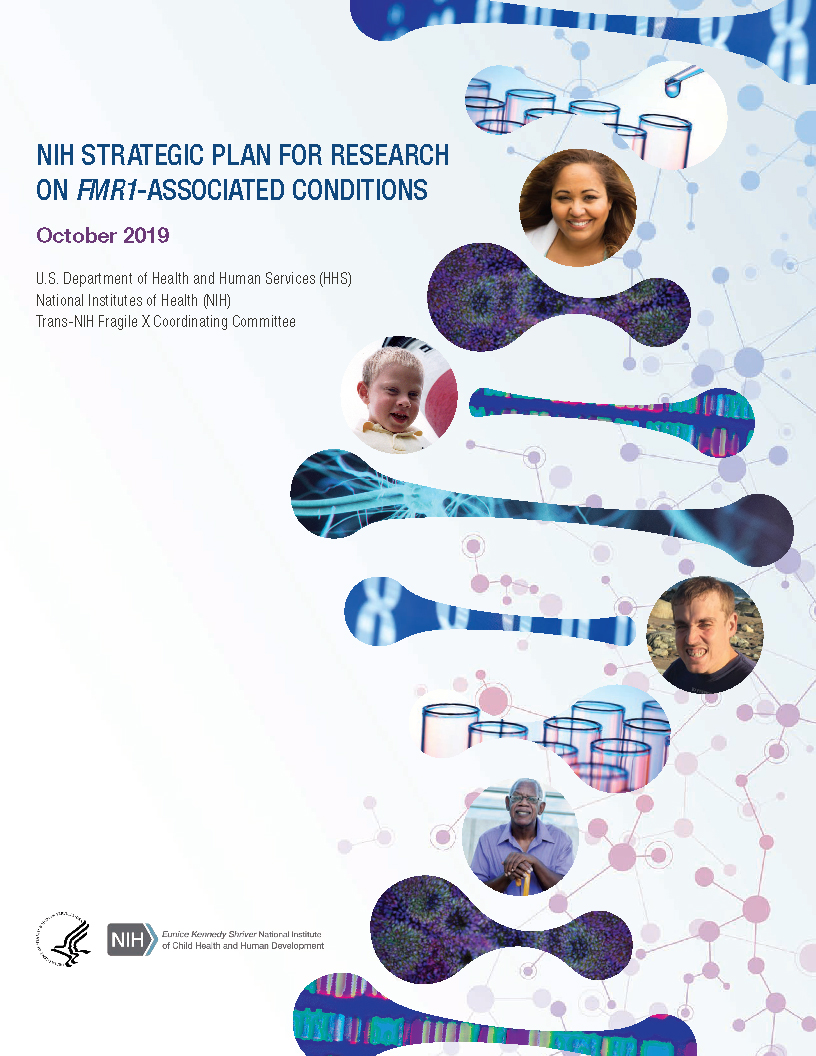
The National Institutes of Health (NIH) recently announced funding for three centers for collaborative research on Fragile X syndrome, the most common inherited form of intellectual and developmental disability (IDD), and related conditions. The centers will receive $25 million over the next 5 years. Funding for the centers comes from the Eunice Kennedy Shriver National Institute of Child Health and Human Development (NICHD), National Institute of Mental Health, and the National Institute of Neurological Disorders and Stroke.
Fragile X syndrome results from changes in the FMR1 gene on the X chromosome. Two other conditions are also known to be related to this gene: Fragile X-associated Tremor and Ataxia Syndrome, which causes problems with movement and the nervous system in middle-age and elderly adults; and Fragile X-associated Primary Ovarian Insufficiency, which leads to infertility and early menopause in women. The centers will study these known FMR1-associated conditions, as well as the FMR1 gene, the role of the gene in development and progression of these conditions, and other aspects of the NIH Strategic Plan for Research on FMR1-Associated Conditions (PDF 2 MB), published earlier this year.
“The FMR1 gene is revealing its far-reaching effects,” said Tracy King, M.D., M.P.H., medical officer in the IDD Branch at NICHD. Dr. King leads the extramural portfolio of FMR1 research for NICHD, including activities of the research centers. “These centers will help us learn more about the gene, its related conditions and health effects, as well as ways to help individuals and families deal with these conditions.”
Centers and Principal Investigators (PI) that received awards include the following:
- Baylor College of Medicine, PIs: David Nelson
, Peter Todd
- Fragile X Center
at Emory University, PIs: Peng Jin, Stephen Warren
- Cincinnati Children’s Hospital Medical Center, PI: Craig Erickson
NICHD is a longtime supporter of research on Fragile X syndrome, the FMR1 gene, and its related conditions. In the 1990s, NICHD-funded researchers discovered that mutations in the FMR1 gene caused the range of symptoms called Fragile X syndrome. NICHD funded the first group of Fragile X research centers in 2003, in response to the Children’s Health Act of 2000, and leads the trans-NIH Fragile X Coordinating Committee.
Recent NICHD-funded studies have found that a specific instruction method for parents improves language function in young people with Fragile X syndrome, and that people who carry a mutated version of the FMR1 gene may experience subtle motor skill changes as they age.

 BACK TO TOP
BACK TO TOP